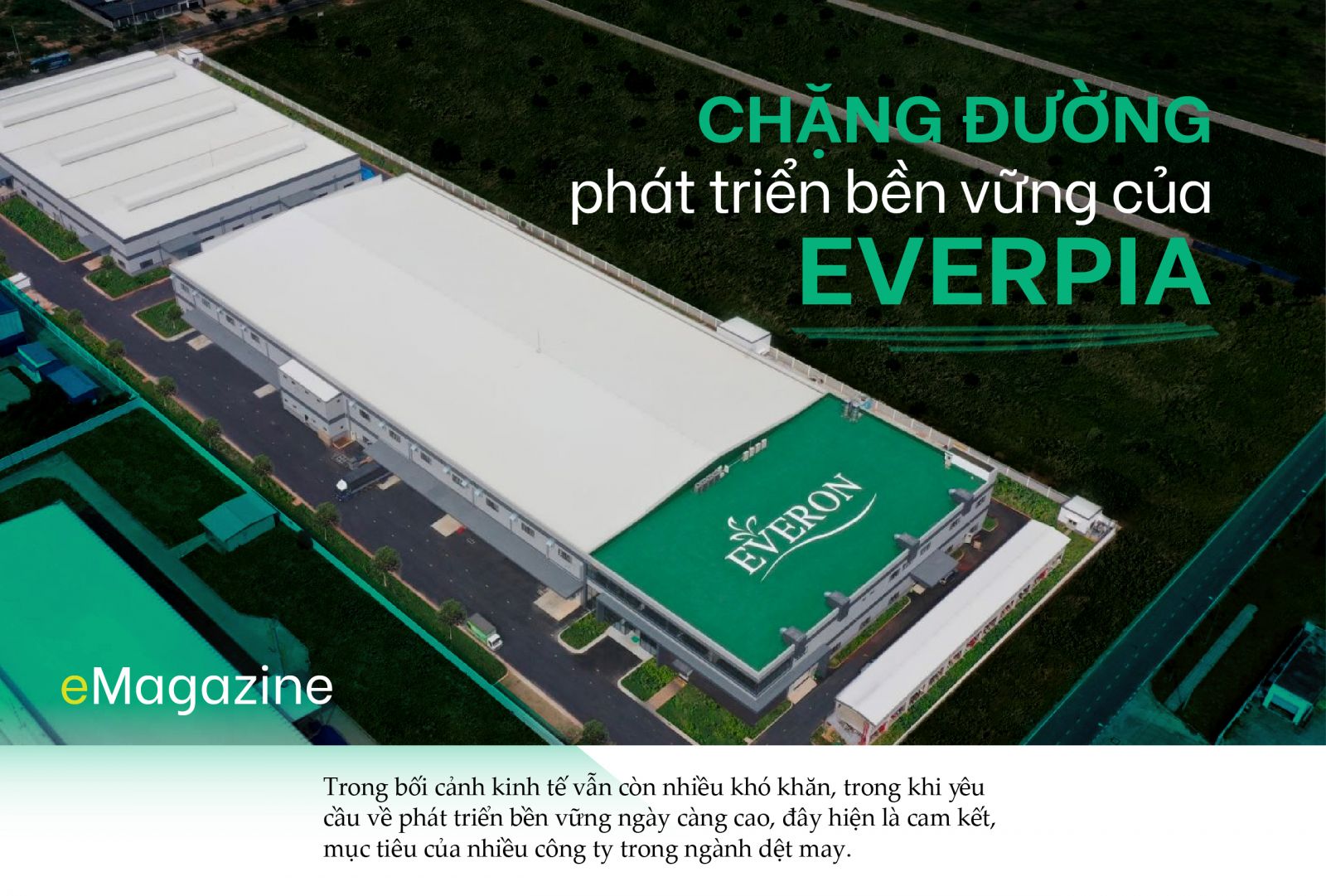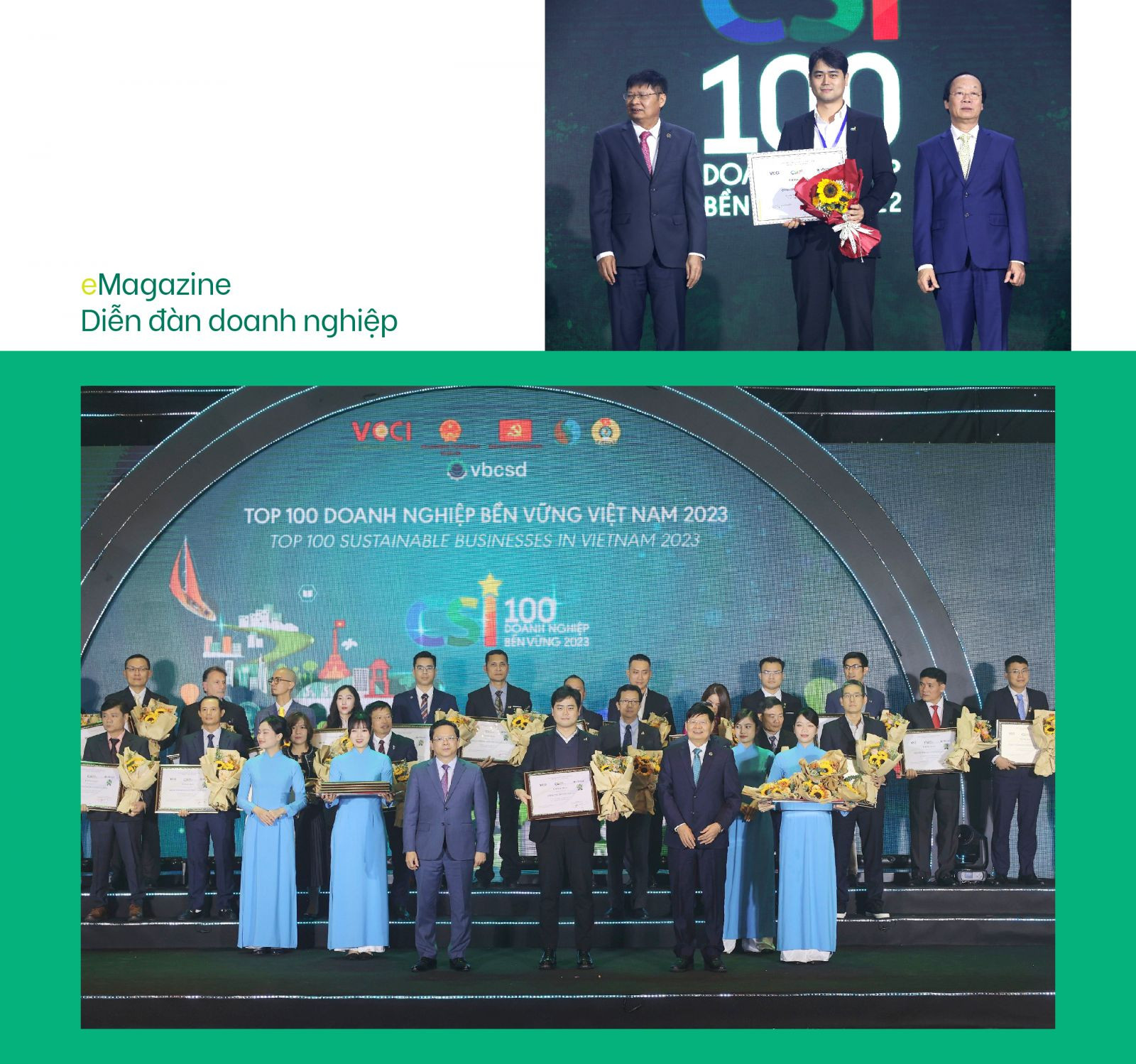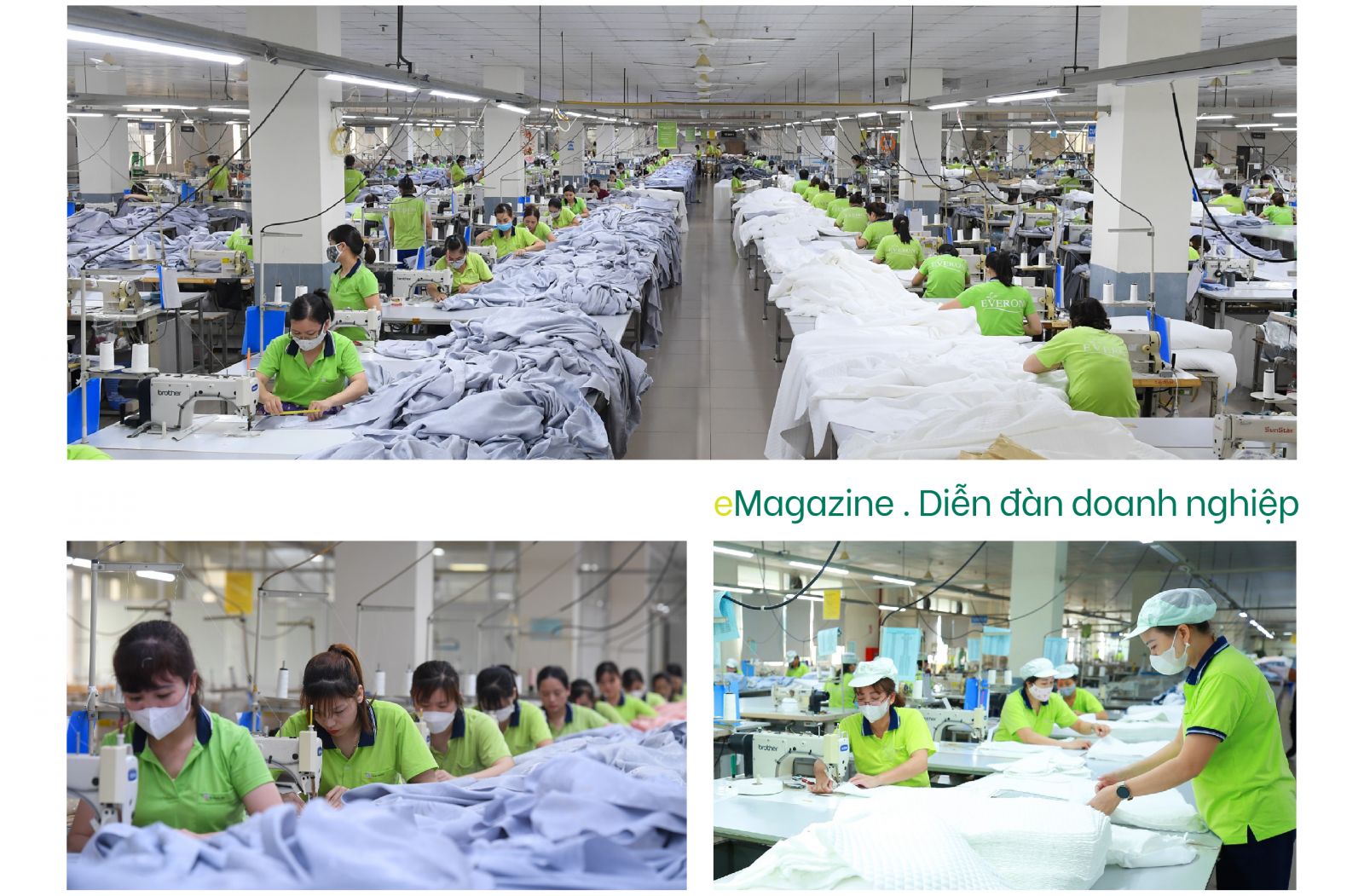Mr. Lee Bang Hyun: "Sustainable development has helped Everpia withstand market challenges and transformations"
 Mr. Lee Bang Hyun - Director of B2C & Online recently had a conversation with the Business Forum about the Everpia 's 8-year journey in sustainable development.
Mr. Lee Bang Hyun - Director of B2C & Online recently had a conversation with the Business Forum about the Everpia 's 8-year journey in sustainable development.
 - In a difficult economic context, while the requirements for sustainable development are increasing, how has the company built a development strategy, and made the policy of sustainable development?
- In a difficult economic context, while the requirements for sustainable development are increasing, how has the company built a development strategy, and made the policy of sustainable development?
The Programme on Benchmarking and Announcing Sustainable Companies in Vietnam (CSI Program) has been implemented by the Vietnam Chamber of Commerce and Industry (VCCI) for 8 years. We are extremely proud and delighted that Everpia has been honored 8 times.
In fact, our journey towards sustainable development began in the early years of our establishment. As one of the first South Korean companies in Vietnam, our message "Share for success" has been realized through strict adherence to environmental and social regulations, welfare policies for employees, and social charity activities. In the following years, we expanded our focus from people to the common home - the Earth.
We understand that responsible production must be our top priority in order to strive for a sustainable future. We not only manufacture, but also create value for stakeholders.
Over the past decade, the company 's goal is to jointly combat climate change in line with the commitments of the Vietnamese government and of Everpia itself through efficient energy use, circular economic models, and creating a safe, positive working environment.
The challenging circumstances have demonstrated that sustainable development has helped Everpia withstand market challenges and transformations. The commitments and actions aligned with our sustainable strategy have enabled Everpia to overcome difficulties, create new premises for the future.
 - How do you evaluate the effectiveness and response of the textile industry in general and the bedding, mattress and padding industry in particular in activities related to sustainable development?
- How do you evaluate the effectiveness and response of the textile industry in general and the bedding, mattress and padding industry in particular in activities related to sustainable development?
The goal of the Vietnamese textile industry by 2030 is to gradually shift the focus towards sustainable development and circular business practices. To successfully implement this model, the sharing of responsibilities between the government and businesses, between brands and factories, is a core factor.
Through seminars, forums, and award programs, I have observed the consensus and efforts of the Vietnamese government and businesses in greening the manufacturing process, promoting the transition from traditional to "responsible" production. Many pioneering companies have achieved certain successes in applying recycled materials, reducing waste and emissions during production, and even achieving carbon neutrality in some stages.
It can be said that sustainable development is no longer a trend, but a commitment and goal of many companies in the textile industry.
At Everpia, to better understand the energy consumption and assess the environmental impacts of our production activities, we have continuously implemented restructuring programs for all factories since 2018. The series of innovative initiatives have improved resource management efficiency, increased the performance of machinery and equipment, and enhanced labor productivity. With a focus on the circular economic model, Everpia prioritizes the use of naturally sourced or environmentally friendly raw materials throughout the lifecycle.

We actively collaborate with the supply chain to promote the use of certified environmentally friendly materials in order to achieve the goal of increasing the proportion of sustainable materials for each main material type. Currently, 100% of the fabrics we use for our annual bedding collection are of natural origin, and 90% of the fibers used in the production of mattresses and quilted pads are recycled fibers.
Moreover, we also collaborate with international sustainable development organizations such as the Sustainable Apparel Coalition (SAC), Textile Exchange, and NQA to manage environmental impacts and ensure that Everpia 's production operations meet international standards. We recently launched the Everpia factory in Giang Dien Industrial Park, Dong Nai, on July 7, 2023. As of now, this is one of the eight projects in Vietnam to be certified with EDGE ADVANCED by the World Bank and the International Finance Corporation, based on energy, water, and material-saving criteria.
In addition to the pillars of governance and environmental stewardship, social responsibility is the third important pillar that guides Everpia towards sustainable development. Social responsibility not only reflects the values that we bring but also demonstrates our respect for employees, suppliers, consumers, and the community. In addition to the ethical business standards we uphold for stakeholders, we implement the Business Social Compliance Initiative (BSCI) within our company.
- In your opinion, what are the barriers and challenges that make it difficult for businesses in the same industry in Vietnam to access, or ineffectively implement these programs?
From my point of view, the two biggest challenges for businesses are capital and resources.
Financial constraints are one of the major challenges for businesses in this industry. Implementing sustainable development programs requires significant investment and high maintenance costs. Meanwhile, businesses still need to maintain stability in terms of pricing and product quality, which creates immense pressure. According to statistics that I am aware of, up to 80% of textile businesses in Vietnam, especially small and medium-sized enterprises, face difficulties in accessing and mobilizing capital for implementing "green" measures.
In terms of resources, Vietnam currently has a shortage of trained personnel with specialized knowledge in sustainable development and green technologies. The lack of experience and expertise not only hinders the implementation of sustainable initiatives but also lacks the necessary skills to effectively innovate or apply new solutions.

So what additional policies and credits are needed to make it easier for businesses to transform towards sustainable development?
To address the difficulties faced by businesses in accessing green credit, I believe that several supportive measures from the government are needed. These measures could include:
Firstly, creating conditions for commercial banks to provide green credit with preferential interest rates.
Secondly, developing and issuing detailed and clear regulations specifically related to green credit, including standards, loan conditions, and monitoring mechanisms.
Thirdly, establishing financial support packages and credit guarantees for small and medium-sized enterprises to encourage investment in clean technology and energy efficiency.
Fourthly, the government should consider providing tax incentives for businesses using green credit to implement environmental protection projects, as well as reducing import taxes on environmentally friendly equipment and machinery.
Lastly, the government can also consider establishing a green credit fund to provide direct support to environmentally friendly projects. This fund could be used to provide low-interest rate capital or financial support for highly sustainable projects.
- In the harsh global business context, how does Everpia plan for 2024?
I refer to 2024 as the "year of revival" because we will plan and envision the year based on the challenges we have faced in recent years. The common thread in all our plans for the new year, 2024, is emphasizing a vision of sustainable development by ensuring value for all stakeholders, including shareholders, employees, local communities, customers, business partners, and the Earth. We will continue to convey these values to the daily lives of each customer by maintaining quality and introducing new product categories with exceptional improvements to rejuvenate and diversify our target customer groups.
During the process of rejuvenating and diversifying our target customer groups, we have recognized our significant role in conveying the messages of "green living" and "sustainability" to the new generation of Vietnamese consumers.
Sincerely thank you!
Source: Everpia 's Sustainable development journey - Business Forum Magazine
